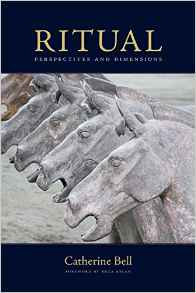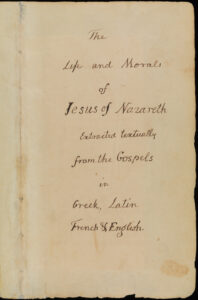Re-Religionization: Secularization Can’t Stop Human Nature
Summary: Religiosity is an inescapable part of human nature. Secularization won’t—can’t—overcome it. Instead, the growing trend of secularization has just led those professing no religion to express their innate religious natures in sub-optimal, ill-thought-out, ad hoc ways.
I just finished reading Ritual: Perspectives and Dimensions by Catherine Bell. It is an academic work surveying the field of ritual studies, describing the role rituals play in human existence, and discussing the various types of rituals. I found particularly interesting this passage analyzing the causes and consequences of secularization in society:
“A more moderate position suggests that secularization is neither a linear developmental process that spells the demise of religion nor a mere interpretive bias on the part of Western scholars. Rather, it can be seen as a type of self-limiting process at work in all ongoing religious systems both ancient and modern. It is self-limiting because it can stimulate religious revival and innovation. As such, secularism may result from some critical degree of contact with different cultures—afforded by travel, conquest, immigration, or competition with neighbors for access to limited resources. If the exposure to plurality—that is, to other value systems and alternative forms of social organization—is intense and sustained or occurs at times of internal social chaos, it can begin to undermine the coherent sense of a unifying order that underlies a traditional society. Some people opt for new and foreign ways of doing things, especially if they are not the ones benefiting from the old ways. People have choices they never had before, whether they want them or not. The mere existence of choices among ways of thinking and acting relativizes what was once deemed absolute, raises questions, necessitates decisions, and promotes experimentation. In this context, some groups become more defensive of tradition, attempting to shun all new options while preserving the old without any change whatsoever. They may even attempt to ignore or retreat from the world around them. Yet older customs strictly maintained in the face of change do not function the way they used to, when they never needed to be asserted and defended. As a society tries to hold together increasingly diverse points of view, one effect is the institutional differentiation that comes with secularism. For example, as Catholics and Jews moved into small, traditionally Protestant New England towns and claimed their rights as full citizens, the explicit and implicit role of Protestantism in the fabric of the town’s social and economic activities was forced to retreat. What was a loss for some was a gain for others. As a result there is a shift of religion from the public and communal sphere to the private and personal, leaving some institutions shorn of all involvement in religion, while others become more explicitly the bastion of religious practice, values, and even public outreach and political lobbying….[A] view of secularism as a theory of institutional differentiation precipitated by the force of pluralism has come to dominate, in part because it recognizes that religion does not die out in secular cultures. On the contrary, in the form of autonomous institutions, religion may have a much sharper profile, it may demand more personal commitment, and it may even exercise more single-minded influence on other institutions.”
Secularization doesn’t mean the end of religion, as some fear. But it does create winners and losers and changes the nature of religion and its role in society.
The key phrase in the passage is that secularization “is self-limiting because it can stimulate religious revival and innovation.” The Second Great Awakening is a great example of this—America’s Founding Fathers were mostly Deists who disbelieved in many parts of Christianity and weren’t big on organized religion. But the next generation after them brought the Second Great Awakening, a period of great religious fervor and religious innovation. Something similar will happen in response to the current trend of secularization.
Some anthropologists and evolutionary psychologists point to cultural universals that are found in every human culture, and which appear to be an innate part of human nature (and thus a part of nature rather than nurture). For example, in every culture on Earth, humans speak languages to communicate and use personal names to identify themselves. Religion is another one of those cultural universals. It is found in every human society on earth.
The current trend of secularization won’t change human nature and eliminate religion, just like if a group decided to give up using language it wouldn’t eliminate language in future generations. If a group did that, refusing to teach language to their children, the kids would end up inventing their own language. In fact, this has happened among deaf children growing up in countries where a sign language wasn’t taught—when deaf children were brought together in an institution for the deaf, even though no one taught any language to them, they naturally and spontaneously invented their own sign language to be able to communicate with each other. Similar things happen when kids who speak different languages are all brought together (say, because their parents are migrant workers)—they invent a new creole language to communicate.
Something similar is inevitable with religion. Even with the growing trend of secularization, even if parents refuse to teach any religion to their kids, religiosity and religion will still continue in some form. It may be transformed (either in content or in its role in society), but you can’t change human nature.
It hasn’t even taken one generation for this process of re-religionization of secular people to already start happening. Among the “nones” who claim no religious affiliation, you can see a lot of quasi-religious behaviors about taboos and orthodoxies and sacralization of values. This haphazard, unconscious re-religionization of their lives often leads to suboptimal results. More often than not, they invent bizarre values to make sacred and barren orthodoxies devoid of much content and that fail to provide any deep, long-lasting meaning to their lives.

